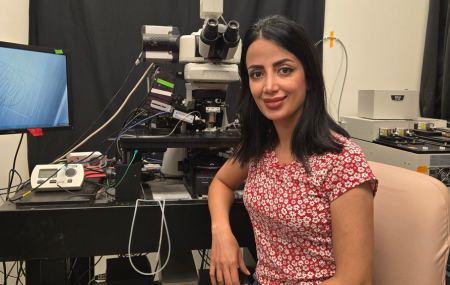The Rock the Block for Pediatric Epilepsy Research Award
Potassium channels are part of the brain’s molecular machinery for electrical signaling. They generally provide a restraining function, and their loss can lead to excessive nerve activity and epilepsy. Mutations in the potassium channel gene KCNQ2 cause forms of epilepsy that begin within days after birth. The severity of KCNQ2-associated epilepsy varies from very mild to severe. In one form, KCNQ2-associated epilepsy is followed by profound, lifelong, developmental delay (epileptic encephalopathy). We will develop methods for augmenting KCNQ2 activity in individuals bearing such severe disease-causing mutations, using a combination of cell-based approaches and animal models.









